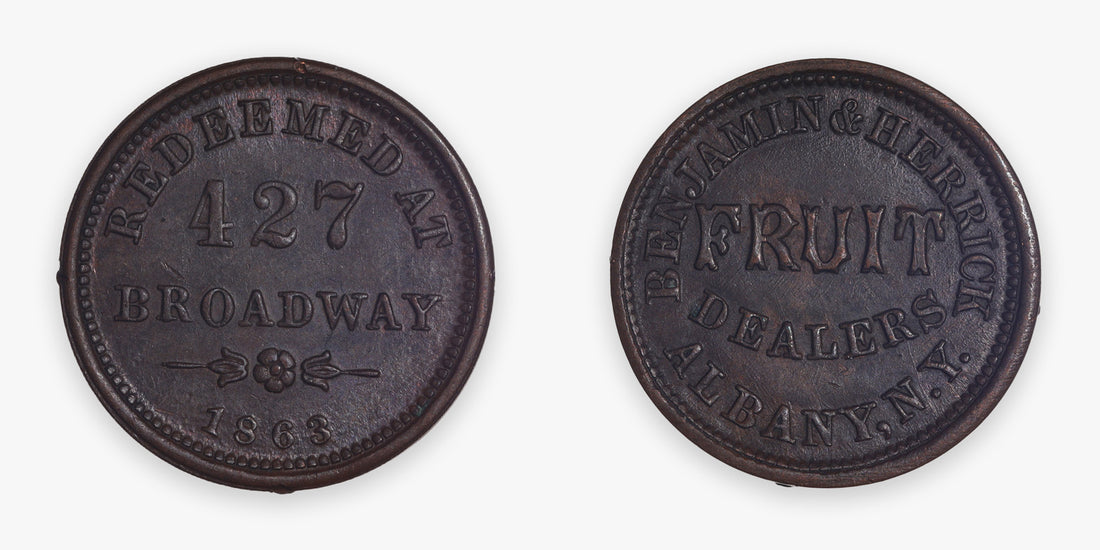Recently, Isaiah purchased a fantastic collection of Civil War Tokens that had been formed over multiple decades by a collector of the material. There were plenty of nicer items mixed in, and it got us thinking about what types of interesting stories these fascinating items tell.
Civil War Tokens (or Patriotic Tokens / Store Cards) were made during the American Civil War between the Union and Confederacy from about 1861 to 1864 as small change dried up. People held onto their coins instead of spending them. This coincided with the suspension of specie payments by the government in 1861 whereby paper money was not exchangeable for gold and silver coins.
It happened right after the switch from large size Large Cents to the Flying Eagle and Indian Head Cents in the late 1850s. Private issuers stepped in and minted their own small change to alleviate this shortage and raise either patriotic sentiment (with cannons & arms) for the North or advertise their own businesses (such as in this example). Instead of being backed by the government, they were to be accepted by those stores for $0.01 in goods or services. They often would have the address prominently displayed (so that you'd know where to find them - there was no Google!) along with a basic description of what the company did.
Some are more common; others are rarer. This item - referencing a Fruit Dealer (such a specific operation!) - is not particularly rare but a step above the most commonly found items, and is in a nice state of preservation.
Many collectors try to focus their efforts on the region they were from - other collection ideas would include a type set of different businesses, or to get a civil war store card from each state or city. With the abundance of rare issuers, it can be a long pursuit, but documents history in a way only coins often can.

